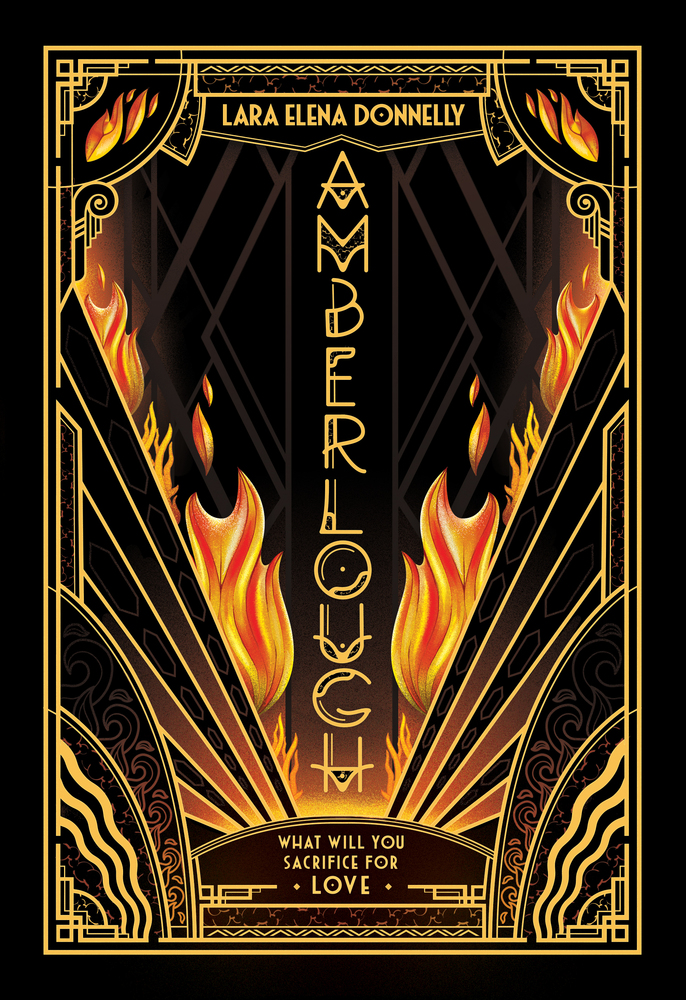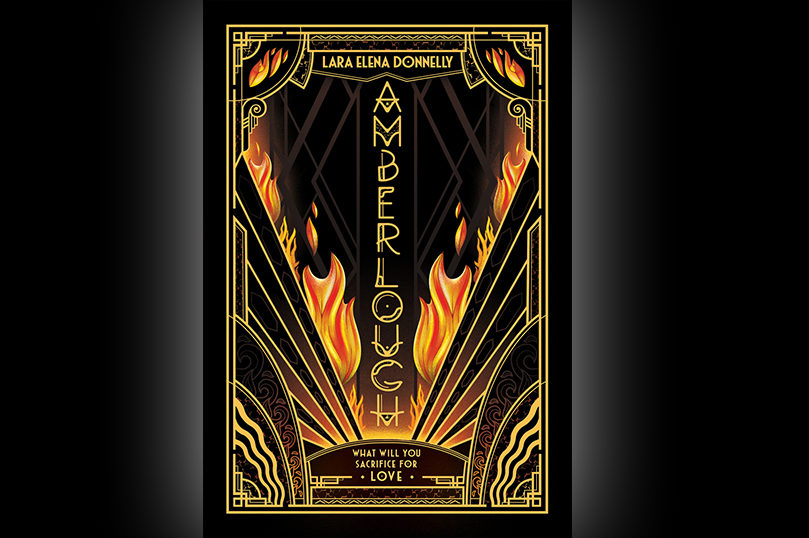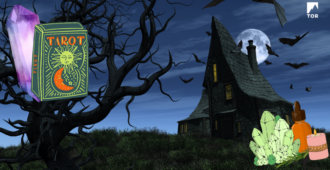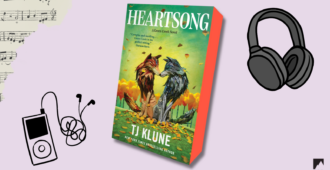opens in a new window opens in a new window
opens in a new window opens in a new window
opens in a new window opens in a new window
opens in a new window opens in a new window
opens in a new window
opens in a new window
In honor of the upcoming release of opens in a new windowAmnesty, the third book in the Amberlough Dossier series by Lara Elena Donnelly, we’re revisiting her guest blog post about how the past influenced the writing of Amberlough. Amnesty is on sale April 16.
Written by opens in a new windowLara Elena Donnelly
Victorians, Edwardians, the Great War, the Jazz Age, the Great Depression, the Greatest Generation… The past is always a time when Men were Men, a time when Good fought Evil and triumphed, a time when glamor was more glamorous. Just look at all those Greats: things were real back then, were bigger, better, nobler, more.
The reality, of course, is much more ambiguous. Masculinity takes many forms. Good and Evil are two ends of a spectrum with a lot of gray in between. It’s sometimes hard to tell, from where you stand, where on the spectrum you’ve planted your feet. Nostalgia can lend glamor to banality and even ugliness.
I’ve been thinking a lot about the tropes and trappings of vintage-inspired media lately, thanks to the impending release of my debut novel Amberlough: a vintage-glam spy thriller that draws heavily on the culture and climate of Berlin in the early thirties, with some interbellum England and a little bit of Fitzgerald’s Paris and New York City thrown in.
Though there is no magic, though there are no dragons or witches or spells, Amberlough is a fantasy novel; it takes place in an invented world. A world I invented because, like many people, I am in love with elements of the past. But I’m also troubled by the way we talk about it and portray it in media. So I made my novel a playground where I could put characters in impeccable evening dress without rules for who wears a gown and who wears tails. Where the color of a character’s skin doesn’t imply the conclusions we might jump to, because this history is not ours.
Which isn’t to say Amberlough City doesn’t have problems. Which isn’t to say it doesn’t have rules. But because those rules are different, when someone breaks them, the transgression doesn’t carry the baggage of our real-world expectations. Because the rules are different, they require detail and elaboration in the text.
Often, period fiction fails when creators replace this complexity with nostalgia and stereotypes. Robert Zemeckis’ recent film Allied is an example: the characters are largely empty shells acting per the dictates of a “World War II Romantic Thriller”: earnest good ol’ boy fights Nazis, gets girl, loses girl, defeats Nazis. No surprises, no suspense, no moral ambiguity. Nothing to inspire emotional investment. Contrast this with the reality of Lily Sergeyev, who almost changed the course of World War II because the SOE lost her beloved dog at the border. I first read about her in Ben MacIntyre’s Doublecross, and spent most of the book as desperate as Lily herself to know: what had happened to Babs? Would she betray the D-Day plans to Germany to avenge the loss of her dog? This woman was willing to sacrifice the free world for a tiny terrier mix. If you’ve ever loved a dog, the story strikes an uncomfortable chord. What might you do, in her situation?
Some fans had negative reactions to Agent Carter’s portrayal of Peggy’s struggle against sexism in the SSR, because in Captain America: The First Avenger we had already seen that her male colleagues respected and admired her. Falling back on simple sexism as a conflict—get the coffee, Agent Carter, stand back and let men do the real work—felt lazy and insulting. Yes, there was sexism during the Cold War, but there were also women doing vitally important, difficult work, and men who trusted them to do it. John Glenn wanted a black female mathematician—Katherine Johnson—to double check the calculations for his orbital trajectory, because he believed that if the computer had made an error, she would catch it. “Get the girl to check it,” he said. Though racism and sexism are inherent in his choice of words, Glenn followed it up with “If she says the numbers are good, I am ready to go.” If prejudice and trust can coexist in life, they can in fiction too.
Downton Abbey, soaked in nostalgia for the peerage, is full of examples of this kind of stereotype-driven storytelling, but perhaps the most egregious is Thomas Barrow. He is presented as conniving, greedy, and cruel, with the implication that he became these things to survive as a gay man in Edwardian England. A conniving, greedy, cruel, gay footman could be a fascinating character if the story gave compelling reasons for his cruelty other than “it’s hard to be gay in 1914.” But here Downton lets us down.
In these properties, we are meant to understand the characters’ motivations and challenges solely through popular assumptions about their era. The past was a “time of absolutes.” The past was a time that valued a very specific type of masculinity. The past was sexist, racist, homophobic. Press too hard on the why of any narrative decision, and the glittering façade cracks: there is no reason beyond “that’s just how it was, right?”
Some modern narratives rely on tropes rather than constructing complex characters from whole cloth, but I think we forgive it more in period pieces, because we’re told that’s how it used to be, back when. We let an aesthetic stand in for an ethos. This substitution isn’t just lazy; it can be dangerous. When we simplify the past, we erase individual experiences, contradictions, and complexity. People have always been people, no matter the decade or the social construct in which they move. We have always been apt to color outside the lines. No constructed paragon of any era will ever be as fascinating as a flawed, enthusiastic, infuriating human being.
I hope Amberlough avoids the pitfalls of readers’ preconceived notions about how we structure period narratives. The vintage glamour sets the mood, and alludes to very real time of sex, strife, and cynicism, but I hope the characters carry the plot and the emotional arcs, rather than relying on hackneyed anachronistic shorthand. I hope it tells a twisted, tangled, human story, dressed up in lipstick and evening clothes and free from expectation.
opens in a new window opens in a new window
opens in a new window opens in a new window
opens in a new window opens in a new window
opens in a new window opens in a new window
opens in a new window
Follow Lara Elena Donnelly on opens in a new windowTwitter, on opens in a new windowFacebook, and on opens in a new windowher website.







Comments are closed.
Leave a Reply